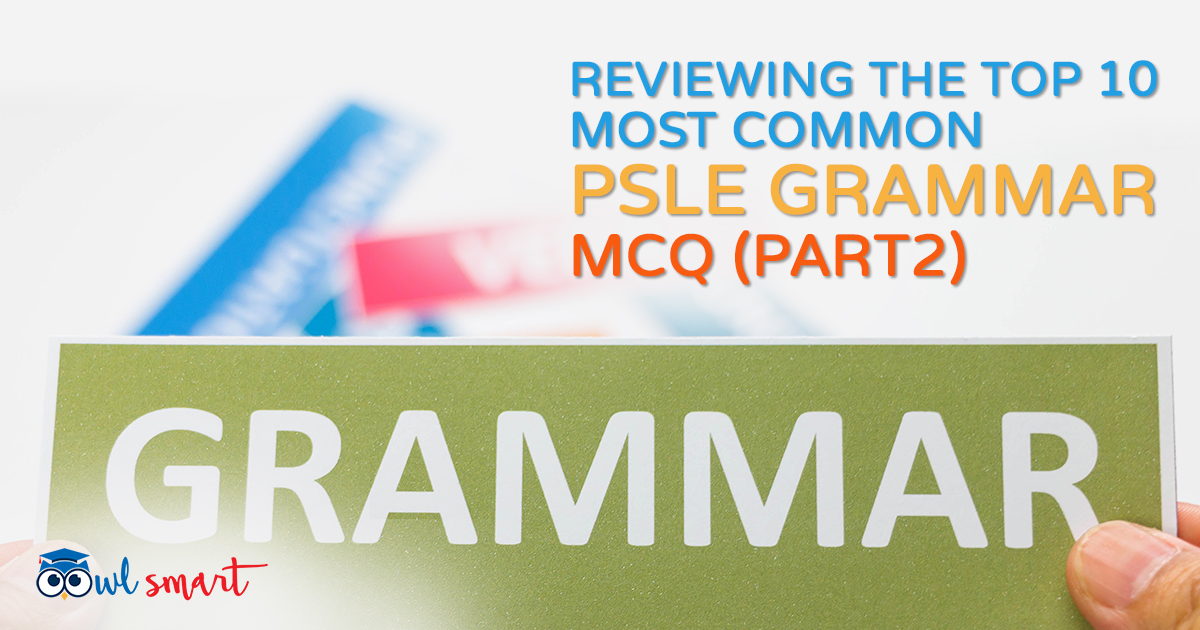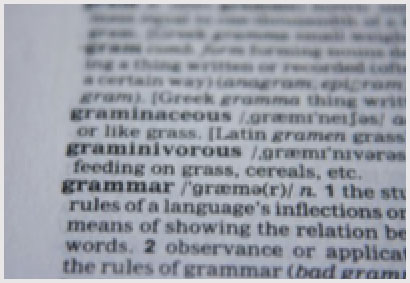
This is the second of three articles that will look at the Grammar MCQs that appeared in PSLE 2016 and 2017. We will share these questions with you and the explanations for the answers. The main purpose of this article is to get the student to be familiar with the structure and requirements of these common questions.
 | Question 4 – Question Tags Tags are extremely common in spoken English. It can be described as a special type of question that English speakers put at the end of some of their statements. |
And no, we are not talking about the immensely popular, one-size-fit-all “is it” question tag used by local Singaporeans for practically all their conversational needs.
E.g. 1
“You’ve got your exam results, is it?(You’ve received your exam results, haven’t you?)
E.g. 2
“You think I don’t know, is it?” (You think I’m really clueless about this, don’t you?)
1. “You’ve conducted this kind of experiment before, __________?” the teacher asked the class. (PSLE 2017)
(1) don’t you (2) didn’t you (3) hadn’t you (4) haven’t you
Answer: (4) haven’t you
2. “Wen Xi arranged the flowers on the table, __________?” her father asked. (PSLE 2016)
(1) won’t she (2) didn’t she (3) hasn’t she (4) wasn’t she
Answer: (2) didn’t she
Explanation
Two basic rules on the use of Question Tags
-
If the statement is negative, the tag must be positive. If the statement is positive, the tag must be negative.
-
The tense of the tag is determined by the tense of the auxiliary/modal verb of the statement that precedes it.
If the statement does not use an auxiliary/modal (i.e. it is in the present or past simple tense and you don’t see words such as do, does, did, am, is, are, has, have, had or can, could, may, might, must, ought, should, and would, then the auxiliary to do must be used)
E.g. (1) You like fried chicken wings, don’t you? (2) He came in first, didn’t he?
-
The following question contains the auxiliary or helping verb “have”. Conducted is the main verb. Have is the auxiliary. The statement is positive. Hence, the tag must be negative.
“You’ve conducted (have conducted) this kind of experiment before, haven’t you?” the teacher asked the class. -
The following question contains the auxiliary or helping verb “did”. Arranged is the main verb. Did is the auxiliary. The statement is positive. Hence, the tag must be negative.
“Wen Xi arranged (did arrange) the flowers on the table, didn’t she?” her father asked.
However, there are unique statements that require the use of specific question tags that do not seem to follow the 2 rules mentioned earlier. We will take a closer look at them in another article.
Question 5 –Present Perfect VS Past Perfect (When to use which)
1. If she __________ the dentist earlier, she would not have lost her tooth. (PSLE 2016)
(1) visit (2) visited (3) had visited (4) have visited
Answer: (3) had visited
2. I __________ with you for over an hour. Let’s take a break,” the exhausted Mr. Han told his son. (PSLE 2017)
(1) was playing (2) will be playing (3) had been playing (4) have been playing
Answer: (4) have been playing
Explanation
These two questions require the student to be clear when to use the Present Perfect tense or the Past Perfect tense.
- If she had visited the dentist earlier, she would not have lost her tooth. (PSLE 2016)
The past perfect tense is used in a past perfect conditional. (What it means is that when the tense in the main clause is the perfect conditional or perfect continuous conditional; “she would not have lost her tooth”, the tense in the “if” clause is the past perfect; If she had visited the dentist earlier.)
2. “I have been playing with you for over an hour. Let’s take a break,” the exhausted Mr. Han told his son. (PSLE 2017)
The present perfect continuous tense is used to talk about a specific action that started in the past and continues in the present.
Question 6 – Connectors
1. “__________ it is perfectly normal to feel disappointed at losing the game, you should not blame your teammates for it,” the coach said sternly. (PSLE 2017)
(1) However (2) Unless (3) While (4) Except
Answer: (3) While
2. The boys continued with the game __________ being tired. (PSLE 2016)
(1) until (2) despite (3) although (4) because
Answer: (2) despite
Explanation
A tried-and-tested approach is to look at the structure of the question and eliminate the options that result in grammatically incorrect structures. E.g. (thinking aloud) “The word “however” is a common introductory word that is always followed by a comma. The comma is missing here. Hence, we can cross out this option. The rest of the sentence that follows “unless” should be positive. You cannot have a negative subordinate clause or a negative main clause after the use of “unless”.
E.g. Unless you don’t prepare for the presentation, you will be nervous on the actual day.
E.g. Unless you prepare for the presentation, you will not be nervous on the actual day.
Hence, “unless” is not the answer.
The word “except” is always used in the form of “Except for…” when it is used at the beginning of a sentence.
E.g. Except for John, I haven’t told anybody about my problem. That eliminates “except” as a possible answer.
That leaves us with Option 3 “While”. At first look, it may seem a slightly unusual answer. “While” actually has the same function as “Though” or “Although” which is a perfect fit for this particular question. We will look at the final four common PSLE Grammar MCQ in the last of our three articles.
About the Author
Teacher Chin has more than a decade of experience in teaching English from Primary Two to Primary Six in local primary schools. He is presently, in his free time, having immense enjoyment experimenting with the Nimzo-Indian Defence in chess and trying out the Apacs Lethal 9 in badminton doubles.



